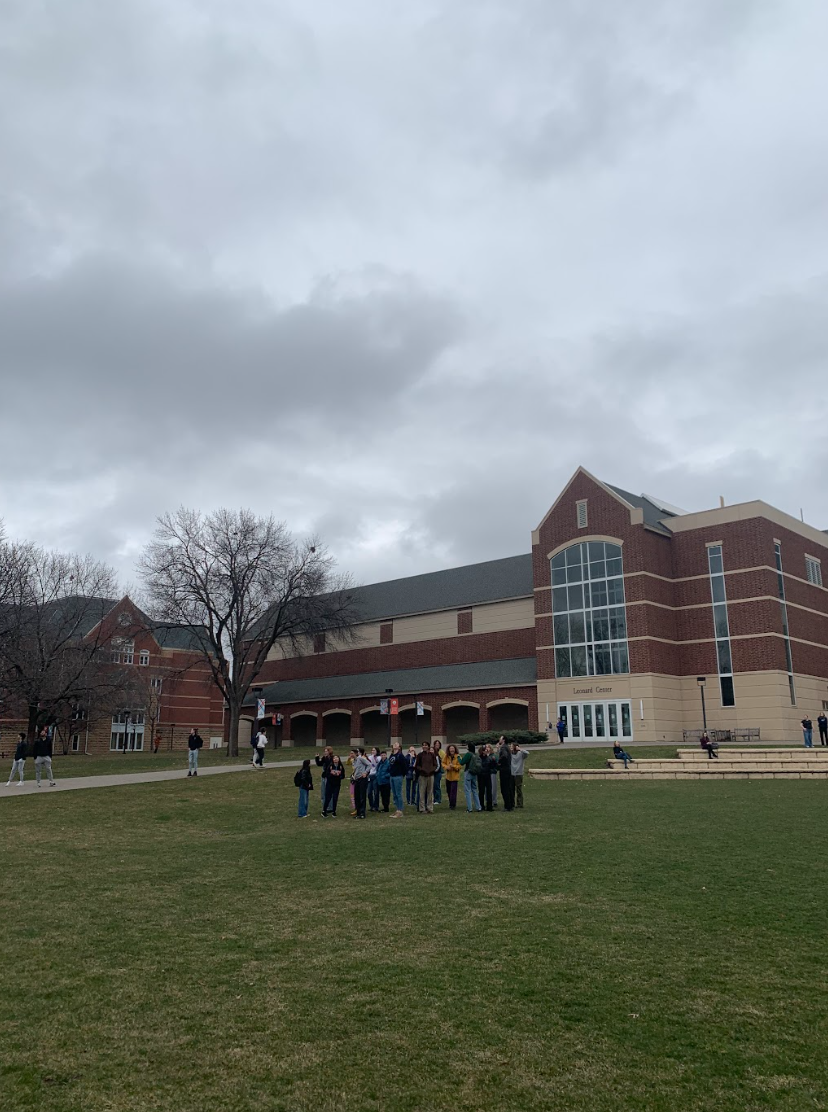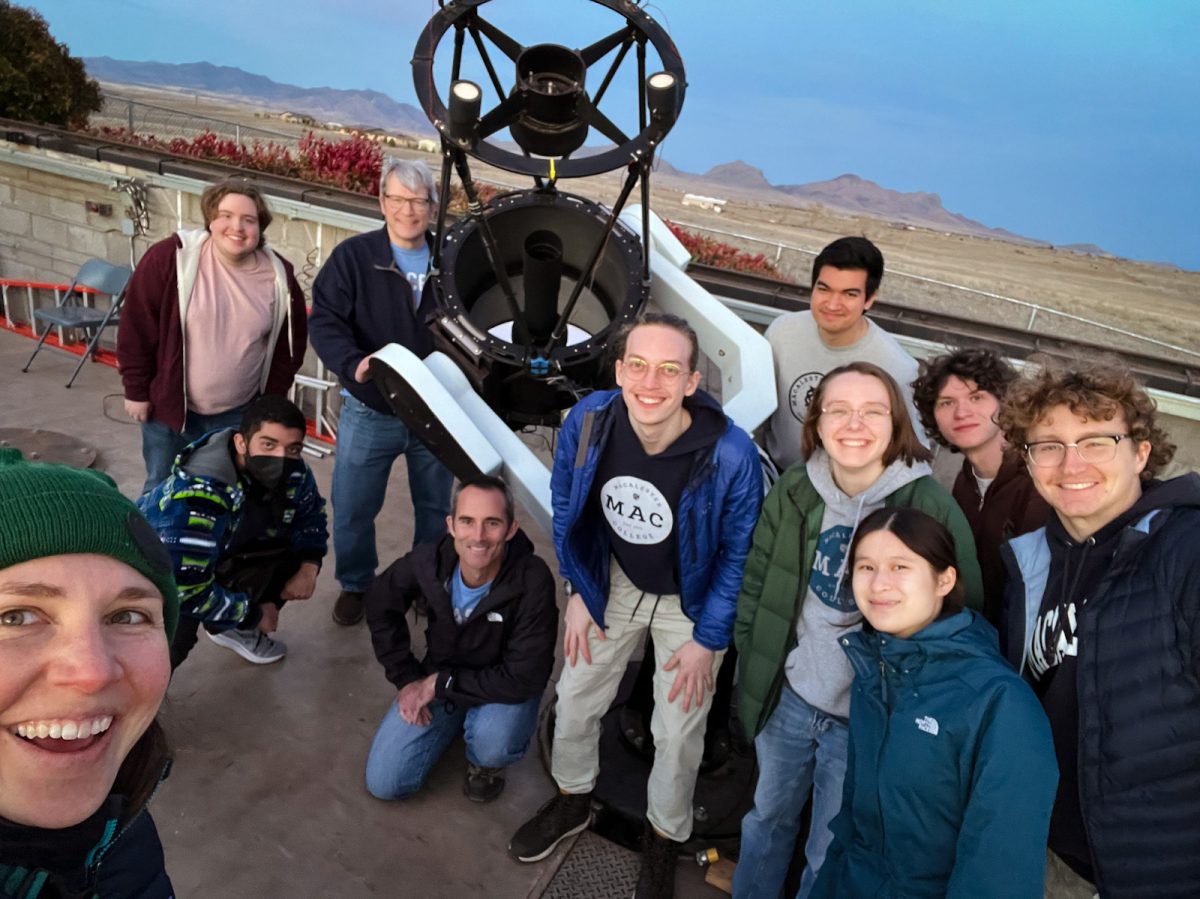Many Macalester students are often overwhelmed by their academic workload alongside their social lives. However, some students must also balance the academic demand alongside working a part-time/full-time job. At times scheduling can be difficult for some students, depending on their jobs, while others are able to pick hours that are easier on their schedules. Jonah Geise ’19 is a dishwasher at Carmelo’s Ristorante and a Legislative Policy intern at National Alliance on Mental Illness–Minnesota (NAMI-MN). Geise started his off-campus job working at Carmelo’s because of financial reasons. “I walked past, saw they were hiring, and walked in and got a job,” Geise explained. Jessie Lee-Bauder ’18 works the front of house at the Naughty Greek. Like Giese, Lee-Bauder got an off-campus job for financial reasons. For Lee-Bauder, the job at the Naughty Greek also had a convenient location. “It’s a block from my house and close to campus,” Lee-Bauder wrote in an email. Hannah Field ’17 is a front of house employee at Punch Neapolitan Pizza on Grand Avenue. Field has been working there since graduating high school in 2013, when she needed a summer job that she could carry into her first year at Macalester that fall. Punch was a logical option. “Grand Avenue was only a 20 minute drive (hour-long bike-ride) from my hometown,” Field wrote in an email. It was mostly chance that she ended up at Punch. “I just applied to a bunch of places along Grand Avenue, and Punch was the only one that invited me back for an interview,” Field explained. Paige Gallo ’17 works full-time (between 30-40 hours per week) at Saint Dinette, a restaurant in downtown St. Paul. Gallo started in 2015 because she was looking for more hours, and thus a higher income, than her previous part-time job, which provided only around 15 hours per week. “I’ve been financially independent from my parents since starting college,” Gallo wrote in an email. By looking for a new job, Gallo hoped to have less trouble managing her living expenses. Maggie Mischka ’17 is a barista at Sencha Tea Bar, where she works about 20 hours per week. Mischka began working in 2016 because she found that her work-study job didn’t completely cover her academic and personal expenses while also allowing her to save for the future. “I find that by having a work-study and an off-campus job, I can pay for those necessities and also put away some money every two weeks for the future,” Mischka wrote in an email. Sencha was close to campus, and Mischka, a tea lover, had previous experience in food-service/customer service. For Geise, Gallo and Mischka, balancing an off-campus job and a social life can be difficult. Geise usually gets scheduled to work on Fridays and Saturdays as those tend to be the busiest days for restaurants. “So, on occasion, I miss out on certain social opportunities,” Geise wrote in an email. Gallo faces the same conundrum: “Given I work full-time at the restaurant, work part-time in the Special Events department on campus, and am finishing my last semester of college, my schedule is booked from the time I wake up until the time I have to go to sleep,” she explained. In an effort to have more concrete time with her friends, Gallo schedules regular coffee dates with a friend – same time, same place, every week.
Mischka does most of her off-campus work during the weekends, which means she spends much less time with her friends than she could last year. She explained, “I’ve missed a lot of get-togethers, and I find myself saying ‘I can’t, I have to work,’ a lot. It’s also hard because unlike a lot of work-study positions, I can’t do homework at my job at Sencha, and I can’t just decide not to go because I have a paper to write or an exam the next day.” The upside? Mischka has made a lot of great friends at Sencha Tea Bar and feels as though her job has allowed her to time-manage more effectively as well as allowed her to mature by supporting herself.
Lee-Bauder does not miss out on as many social occasions because a few of her friends work at the Naughty Greek alongside her. “I typically work at times when people are in class or doing homework anyway,” Lee-Bauder explained. Much like Lee-Bauder, Field has expanded her social life by working at Punch. “I’ve made some really good friends with other employees there, who I’ve hung out with outside of work and stayed in contact with even when they’ve left Punch,” she said.
Geise, Lee-Bauder, Field and Mischka’s jobs are close to campus, making transportation easy. Geise is able to walk, bike or bus to his job or internship without it impeding his ability to class or his off-campus job on time. Lee-Bauder is also able to walk to her job. However, when looking for jobs, Lee-Bauder explained, “my ability to [get to class on time] did affect how I chose this job. I can end my shift at 2:00 and still get to my 2:20 class.” The same goes for Field, who bikes to her job. “It’s only 10 minutes from Macalester on two wheels,” Field wrote. Mischka also has a job very close to campus. She often leaves her dorm 15 minutes before her shift starts, but has never been late to her job. “It’s all about smart scheduling and making sure your manager knows your availability,” Mischka wrote in an email.
Gallo’s job, in downtown St. Paul, is not as close to campus. “As soon as I got my license I bought my truck, and it’s certainly made getting to work faster,” Gallo explained. “Now, I can drive to work in about 15 minutes with heavy traffic, so even if I have a later class, I can still get there by the time service starts.” Gallo used to take the bus downtown, and used the transit time to work on outlines or reading papers. Because she no longer takes the bus, she doesn’t have to factor in transportation time in as much when she picks classes. According to Gallo, “It’s a trade-off either way, but somehow it always works out.”
Geise, Field and Gallo are able to balance their academic lives alongside their work and social lives, but it doesn’t come easily. Gesie said that “carving out a work schedule that is conducive to my academic commitments at Mac” is the hardest part of having a job off-campus. For Field, working at Punch, six hours of being on her feet, can be exhausting. “A lot of times I come home and just want to go to bed, so rallying on a Friday or Saturday night (or even afternoon) after work can be tough,” Field explained.
Gallo also finds balancing off-campus work and academic work difficult at times, especially when finals and quick turnaround assignments come up. However, having worked since starting at Macalester, Gallo has been able to find a good balance where she is able to stay relatively stress free. “It’s strange to think about, but I feel as though working as much as I do forces me to be a more proactive student,” Gallo wrote. Because Gallo works so frequently, she does not have the privilege to procrastinate on academic work, which in the long run has improved her work ethic. This work ethic has its drawbacks though. “I forget to eat some days. With a schedule like this, you’re moving so fast you forget to take care of yourself or to just slow down a bit. I don’t mean it to sound as if I’m complaining — I love what I do, if I ever got a full day off I wouldn’t know what to do with myself, I’d probably be bored out of my mind. I guess what I mean to say is the hardest part of working off-campus is there just aren’t enough hours in the day for everything I want to do,” Gallo wrote.
Mischka had a different take on the hardest part of working off-campus. “I feel like there’s a silence at Macalester about working off-campus and students who have to support themselves financially,” Mischka wrote. Mischka has found herself in uncomfortable conversations where people don’t quite understand what her job entails, tell her to just call in sick, or say her job seems easy.
“I wish more people on campus talked about having service jobs, because there’s a huge focus on more ‘academic’ jobs and unpaid internships here, so sometimes I feel like my experience isn’t valued or necessary,” Mischka explained.


















Michael Nash • Sep 12, 2019 at 12:12 am
The subsequent time I learn a blog, I hope that it doesnt disappoint me as a lot as this one. I imply, I do know it was my option to learn, however I truly thought youd have one thing interesting to say. All I hear is a bunch of whining about one thing that you possibly can repair if you happen to werent too busy in search of attention.
Tim Morgan • Sep 10, 2019 at 5:42 pm
As I website possessor I believe the content material here is rattling magnificent , appreciate it for your hard work. You should keep it up forever! Good Luck.
Karen MacDonald • Sep 6, 2019 at 10:21 am
Great website! I am loving it!! Will come back again. I am taking your feeds also.
Antonia Gertsch • Jul 22, 2019 at 11:08 am
Mass parsite http://bit.ly/2W9CVkn